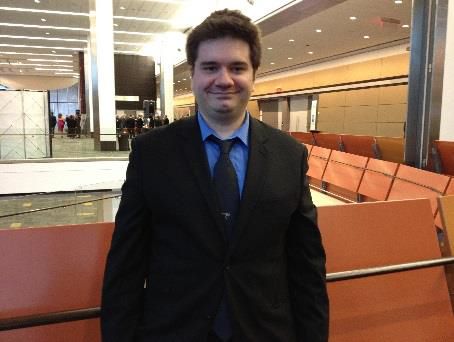
 International Organization
International Organizationfor
Chemical Sciences in Development
Current Activities: Materials for Energy Conversion, Saving and Storage (MATECSS)
The existing global infrastructure for power generation and delivery is largely entrenched in a
paradigm of centralized production in power plants, with delivery to customers through a network of
transmission lines and transformers. While this model is reliably implemented in most developed
nations, low- and medium-income countries (LMICs) often lack reliable electricity delivery services.
The reasons for this often relate to a lack of local fossil fuel supplies, and a dependence on
costly fuel imports that keep electricity prices high and prevent a critical mass of consumers
necessary to implement delivery infrastructure. The International Energy Agency (IEA) estimates that
1.3 billion people lack basic electricity and that 2.7 billion still rely on burning biomass to cook
their food. On the other hand, access to energy, specifically clean
alternative energies, is not considered a prerequisite for any type of development; in addition,
enabling energy access in LMICs has the potential to address directly or indirectly all the
Millennium Development Goals (MDGs).
Recent materials- and process-driven advances have led to a considerable maturation, and significant
price drops, in technologies for harvesting and storing energy from renewable sources. In contrast
to fossil fuels, the geographic distribution of renewable energy resources (sunlight, wind) favors
many LMICs. Advanced technologies that capitalize on these resources are key to enabling energy
self-sufficiency in regions not currently served by reliable large-scale power infrastructure. These
renewable energy sources have the additional benefit of being highly scalable: they are
cost-efficient even in very small implementations, which makes them amenable to use in local-scale
distributed electrical systems.
The need for growth in this sector is pressing. The 2011 edition of the IEA's World Energy
Outlook estimates that to meet the goal of universal access to electricity by 2030, at least 55%
of new electricity generation should be local-scale (isolated off-grid or part of a local energy
grid.). Since renewable energy sources lack the constancy of traditional
fossil-fuel power generation, energy storage (batteries, etc.) is a critical aspect of local-scale
energy production. Finally, it is essential to develop advanced materials that minimize energy
consumption in everyday processes, such as diode-based light bulbs or high-efficiency building
insulation.
The Working Group (WG) Materials for Energy Conversion, Saving and Storage (MATECSS), formed in
2013, has two objectives. First, it aims to expedite technology transfer in the areas defined by
MATECSS by connecting experts from around the world with local scientists, engineers and students in
LMICs. This process will involve working with locals to identify specific needs in targeted regions.
In a second subsequent phase, an internet-based platform will be used to create a flow of knowledge
and know-how to the local stakeholders. This virtual interface will be supported with face-to-face
meetings in the form of on-site short courses and regional workshops or symposia aimed at defining
specific and concrete actions as a follow up on the virtual platform.
The second goal of the WG is to foster the development of low cost, adaptive technologies based on materials for energy conversion, saving and storage that fit within
the paradigm of local-scale energy systems and that use local resources. For example, a recent
meeting of the African Materials Research Society highlighted the potential for fabricating
dye-sensitized solar cells using dyes extracted from papaya leaves .
To address these challenges and attain these objectives, the WG will adopt the following approach:
-
Choose a few select countries/regions (e.g. Brazil, Mexico, Nigeria, Vietnam) and identify
their needs in terms of affordable energy technologies. This will be achieved by:
- Conducting electronic surveys
- Organizing focused workshops in the specified regions
- Develop interactions and exchanges between academic collaborators and industrial partners in these regions to better determine and serve their needs. This will be attained by setting up exchanges of students and professors.
The Group is co-chaired by Federico Rosei (rosei@emt.inrs.ca) and Mohamed Chaker (chaker@emt.inrs.ca), Professors and Canada Research Chairs
holders at the Centre Énergie Matériaux Télécommunications at the Institut National de la Recherche Scientifique
(INRS), Montreal.


Profs. Rosei (left) and Chaker (right) co-Chair the IOCD Working Group on Materials for Energy Conversion,
Saving and Storage (MATECSS).
Prof. Federico Rosei has been the recipient of numerous awards for his work. These include:
- Presented with the World Cultural Council's 2014 José Vasconcelos World Award of Education at a ceremony in Finland on 17 November 2014, which was attended by IOCD's Executive Director.
- Accorded the honour of being appointed to a UNESCO Chair at the INRS in Montreal in 2014.
- Conferred the Canadian Society for Chemistry's John C. Polanyi Award for scientific excellence in 2016.
- Conferred the Spirit of Abdus Salam Award in 2023 for showing "outstanding international leadership, spanning from research, to education to building capacity and mentoring." The award recognizes those who, like Salam himself, have worked tirelessly to promote the development of science and technology in disadvantaged parts of the world.
- Other awards are listed here.
References
- International Energy Agency, World Energy Outlook 2011.
- F. Rosei, L. Vayssieres, P. Mensah, Materials Science in the developing world: Challenges and perspectives for Africa, Advanced Materials 20, 4627-4640 (2008).
- M. Chaker and F. Rosei, Rising from the Falls, Nature Materials 11, 187-188, 2012.
 Top of Page
Top of Page